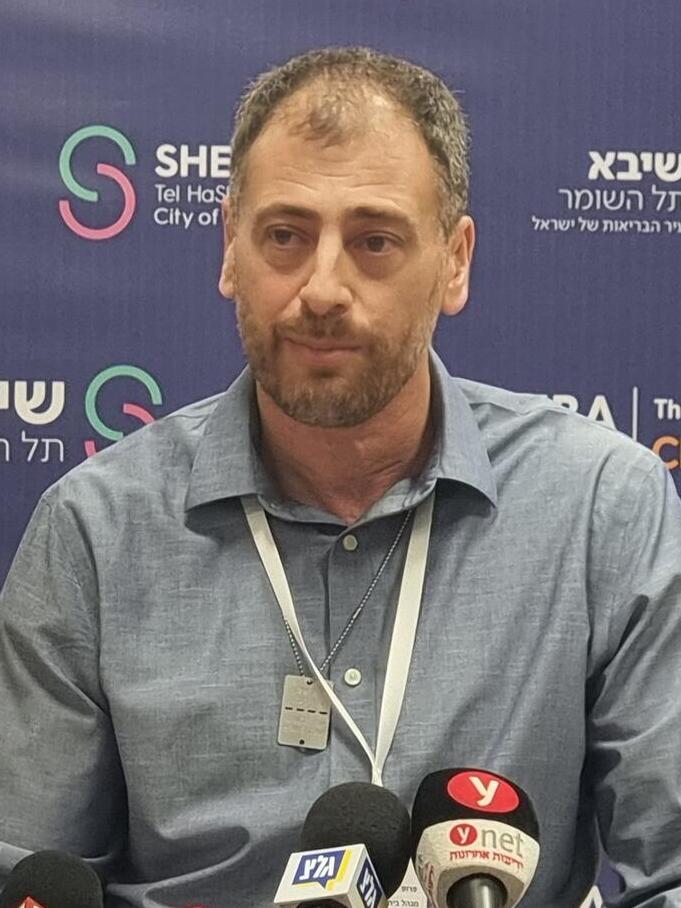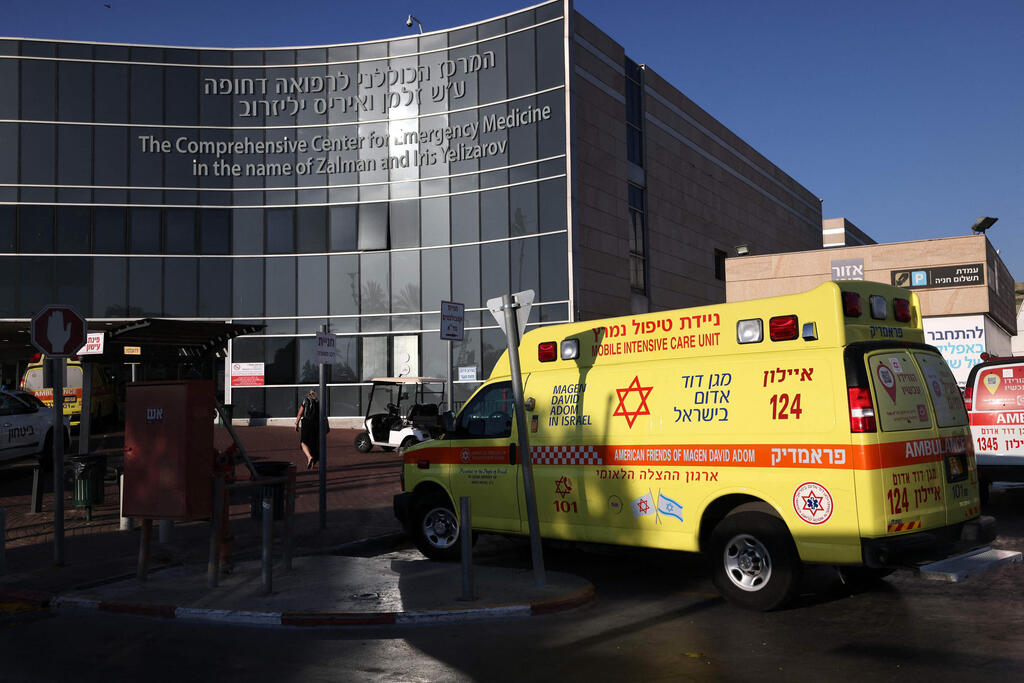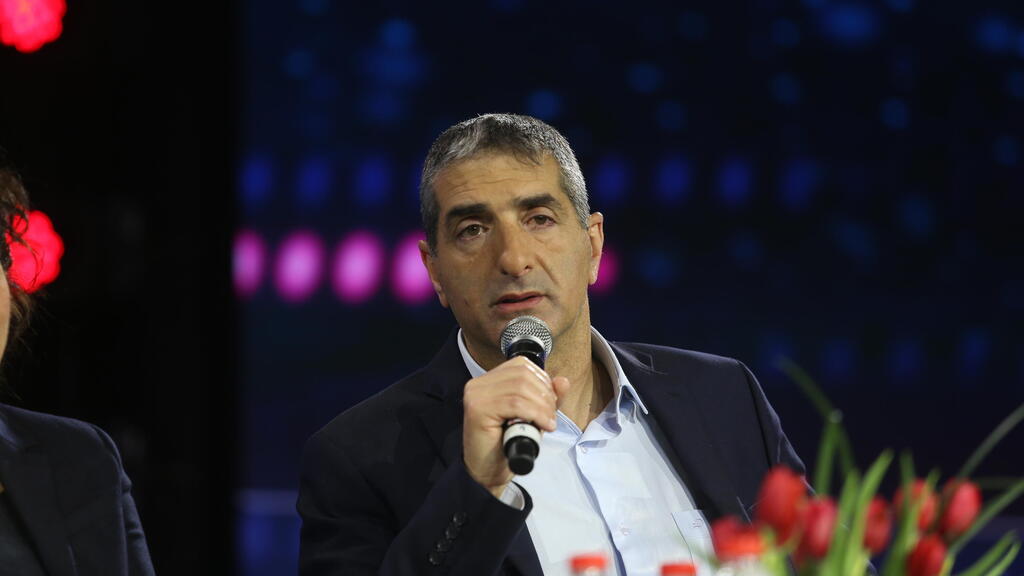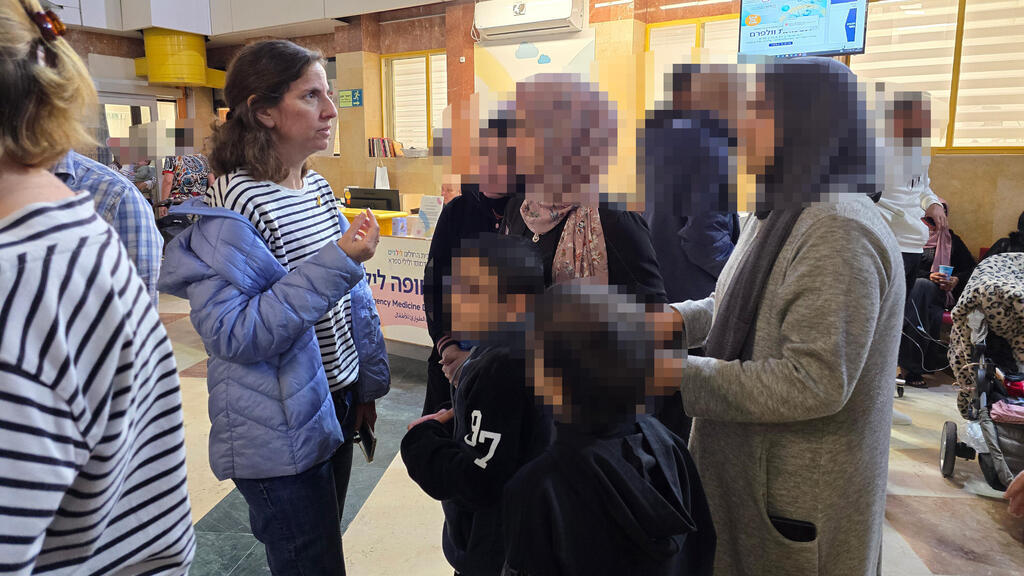Getting your Trinity Audio player ready...
A Gazan family from Khan Younis is staying at Israel’s Sheba Medical Center as part of efforts to save their son, suffering from leukemia, in a complex operation.
Sheba Director-General Prof. Yitshak Kreiss said in a conference recently that doctors recommended the mother to have another child in order to allow for a bone marrow transplant for her son. Following their advice, the mother gave birth to another son a few days before October 7, and has remained in the hospital with her two children since.
The Gazan family’s story, which Prof. Kreiss revealed in a closed lecture, began before Hamas’ attack on October 7, when Sheba routinely treated Palestinians who arrived from the Gaza Strip. A mother from Khan Younis arrived at the hospital with her son who was suffering from leukemia and needed a bone marrow transplant urgently.
After no donor was found for the child, the hospital suggested the mother have another child and take a bone marrow donation from the infant to transplant in the sick child, and the mother agreed, arriving at the hospital prior to the birth before October 7, and giving birth after the events.
After the baby was born, a bone marrow transplant was performed according to the doctors’ original plan: the bone marrow was taken from the newborn and transplanted into the sick child. The sick child recovered, but the mother and her two children have been staying in the hospital and can’t return home since.
"Sheba is a hospital of peace and a symbol of coexistence where medical treatment is provided to everyone. We treat Palestinians, we cooperate with Palestinians and we host Palestinians. We share the same fate," Prof. Kreiss said.
"When rocket sirens sound, Jewish and Palestinian mothers sit together in the same safe room. Some 25% of the children in the hospital arrived from the West Bank. We treat the most severe cases. We treated Gazan patients before October 7. We’re not politicians. We’ll continue to live together and continue to treat Palestinians after the war as well," Prof. Kreiss added.
Prof. Itai Pessach, Director of the Edmond and Lily Safra Children's Hospital at Sheba Medical Center, said, "As pediatricians, we only see a child when we stand before our patient. We’ve always pushed the boundaries of what’s possible in providing groundbreaking treatment for every child who needs it, regardless of their origin.”
“We’ve done so in the past, and we’ll continue to do so. We’re happy to be able to offer the most advanced and best medical care to every child whoever they may be," he added.
 Prof. Itai PessachPhoto: Shmulik Davidpur
Prof. Itai PessachPhoto: Shmulik DavidpurCurrently, two girls from the Gaza Strip are hospitalized at Sheba Medical Center, where five of their family members also stay. In addition, 13 Gazan patients and their relatives are hospitalized in three hospitals in East Jerusalem.
Among the patients in Israel are a girl recovering from cancer treatment, a father of a girl in a life-threatening condition and a girl donating bone marrow to her brother. The ones hospitalized in East Jerusalem include a cancer patient who was operated on on October 7 and at least two people who were wounded in the war in Gaza.






